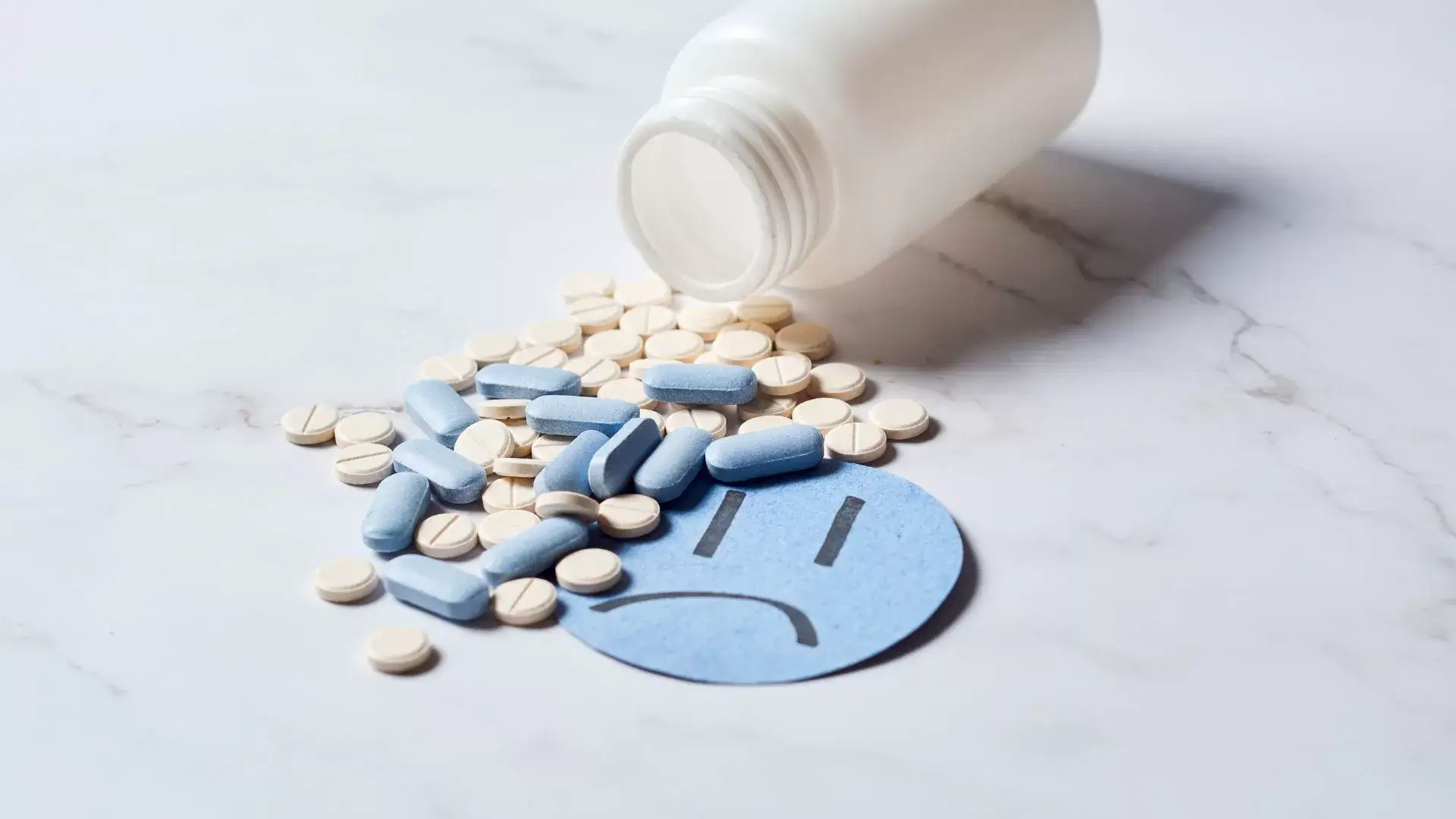When we explore drug-induced psychosis, we find it manifests through symptoms like hallucinations, delusions, and disorganized thinking. These experiences can be terrifying, affecting not just the person but those around them. Many substances, including cocaine and hallucinogens, trigger these episodes, often influenced by dosage and pre-existing conditions. Withdrawal and environmental stressors can also play significant roles. Recognizing the symptoms early is essential for effective intervention. Knowing what causes these episodes helps us better understand their impact. If we reflect on these factors, we can better equip ourselves with the knowledge for recovery and support.
About Mississauga Psychotherapist
In Mississauga, we acknowledge that seeking help from a psychotherapist can be an significant step for those grappling with the complex effects of drug-induced psychosis. Understanding this condition can be overwhelming, and connecting with a qualified professional can provide the necessary support. An Mississauga psychotherapist can help us navigate the emotional turmoil and confusion that often accompany these experiences.
Located at 1834 Lakeshore Rd W #6PA, Mississauga, ON L5J 1J7, the psychotherapy clinic offers a safe space for individuals to explore their thoughts and feelings without judgment. We understand that empathy and understanding are vital in therapy, especially when dealing with the stigma surrounding mental health issues. The therapists here are trained to use evidence-based approaches tailored to our unique needs, ensuring that we receive personalized care.
If we find ourselves or someone we care about struggling with the effects of drug-induced psychosis, we should reach out for help. Contacting the clinic at (289) 212-8465 can be the first step toward healing and recovery. Remember, we’re not alone in this journey; support is available, and it’s okay to ask for it.
Defining Psychosis: What You Need to Know
What exactly is psychosis, and how can it impact our perception of reality? Psychosis is a mental health condition that alters the way we interpret our surroundings, often leading to a disconnect from what’s considered real. During a psychotic episode, we may experience hallucinations—seeing or hearing things that aren’t there—or delusions, which are false beliefs that seem very real to us. This shift can be disorienting and frightening, not just for those experiencing it but also for loved ones trying to help.
Understanding psychosis is essential for fostering empathy and support. It’s important to remember that those affected aren’t simply “acting out” or “seeking attention.” Their reality has shifted, causing significant distress. We might notice changes in behavior, mood swings, or difficulty concentrating, all signs that something deeper is at play.

Understanding Drug-Induced Psychosis: Causes and Risks
Drug-induced psychosis can emerge from various substances, leading us to confront the unsettling intersection of mental health and substance use. As we explore this phenomenon, we recognize that the causes often stem from the chemical alterations these substances impose on our brain’s functioning. By disrupting neurotransmitter systems, substances can create imbalances that may manifest as hallucinations, delusions, and disorganized thinking.
It’s essential to understand the individual risk factors that can heighten susceptibility to drug-induced psychosis. Factors such as pre-existing mental health conditions, genetic predispositions, and environmental influences play significant roles in determining who might experience these severe symptoms. Additionally, the dosage and duration of substance use can exacerbate these risks, leaving us to ponder the delicate balance between recreational use and potential psychological harm.
We must acknowledge that while some may experiment with drugs without immediate consequences, others may face devastating mental health crises. By fostering a compassionate understanding of these dynamics, we can better support those affected and promote informed conversations about the risks associated with substance use. Together, we can work towards a more empathetic approach to mental health and substance-related challenges.
Substances That Can Trigger Drug-Induced Psychosis
Many substances commonly used recreationally can trigger drug-induced psychosis, highlighting the urgent need for awareness and understanding of their potential effects on mental health. Among these substances, stimulants like cocaine and methamphetamine are particularly notorious. They can elevate dopamine levels dramatically, leading to paranoia and hallucinations. Similarly, hallucinogens such as LSD and psilocybin mushrooms can distort perceptions of reality, sometimes resulting in psychotic episodes.
Cannabis, often perceived as harmless, can also contribute to psychosis, especially in individuals with a predisposed vulnerability. The potency of certain strains has increased in recent years, making it essential for users to recognize their limits.
Additionally, prescription medications—especially those that affect the brain, like corticosteroids and certain antidepressants—can inadvertently lead to psychotic symptoms. These substances remind us that even legal medications require careful monitoring.

Recognizing the Symptoms of Drug-Induced Psychosis
Recognizing the symptoms of drug-induced psychosis is essential for anyone using substances, as early intervention can greatly impact recovery and safety. We should be vigilant about the signs that may indicate a serious issue. Symptoms often include hallucinations, where individuals see or hear things that aren’t there, and delusions, which are deeply held false beliefs. These experiences can be frightening and disorienting, both for the person affected and those around them.
Additionally, we might notice significant mood swings, increased anxiety, or even paranoia. Changes in behavior, such as withdrawal from social situations or erratic actions, can also serve as red flags. It’s vital that we pay attention to these shifts, as they can escalate quickly.
Cognitive impairments, such as difficulty concentrating or memory issues, may arise, leaving individuals feeling lost or confused. By recognizing these symptoms early, we can foster a supportive environment that encourages individuals to seek help. Being aware of the signs not only aids in understanding but also empowers us to take proactive steps toward recovery. Awareness is our first line of defense in addressing drug-induced psychosis effectively.
Finding Help for Symptoms of Drug-Induced Psychosis
When we notice symptoms of drug-induced psychosis, seeking help becomes a vital step toward recovery and stabilization. It is important to understand that we’re not alone; many have walked this path and found their way back. Our first step should involve reaching out to healthcare professionals who specialize in addiction and mental health. They can provide accurate assessments, support, and tailored treatment plans that address both our mental health and substance use issues.
We might also consider contacting support groups where we can share our experiences and hear from others facing similar challenges. These connections can help reduce feelings of isolation and provide valuable insights into coping strategies.
Additionally, educating ourselves about the effects of substances on mental health can empower us to make informed decisions about our recovery. We should remember that recovery is not just about stopping drug use; it’s about rebuilding our lives and addressing underlying issues contributing to our symptoms.
In this journey, compassion towards ourselves is important. Acknowledging our struggles and seeking help is a brave step, leading us toward a healthier, more stable future.

Seek Help from Our Registered Psychotherapists
Seeking help from our registered psychotherapists can provide us with the expert guidance and support necessary to navigate the complexities of drug-induced psychosis. Recognizing that we’re not alone in this struggle is vital; many individuals face similar challenges, and professional help can make a significant difference.
Our registered psychotherapists are trained to understand the nuances of psychosis triggered by substance use. They can help us identify the underlying issues and work towards effective coping strategies. These professionals utilize evidence-based approaches tailored to our unique experiences, enabling us to explore our thoughts and feelings in a safe environment.
Additionally, therapy offers us a space to process trauma, improve emotional regulation, and develop healthier habits. By working collaboratively with our therapists, we can foster resilience and healthier perspectives on our circumstances.
It’s important to remember that seeking help isn’t a sign of weakness; it’s a proactive step towards recovery. With the right support, we can regain control over our lives, moving towards a brighter, healthier future free from the grips of drug-induced psychosis. Together, we can build the tools we need to flourish.



